Modern History Essay: Imperialism, War, and Totalitarianism Analysis
VerifiedAdded on 2022/09/12
|5
|1006
|12
Essay
AI Summary
This Modern History essay explores the implications of imperialism, the causes and justifications of World War I, and the rise of totalitarianism. The essay begins by analyzing Edward Said's views on the impact of culture on imperialism and the division between the West and the non-West, referencing the poem 'The White Man's Burden' and Joseph Conrad's 'Heart of Darkness'. It then examines the War Guilt Clause of the Treaty of Versailles, attributing blame to Germany for initiating World War I. The essay also discusses the concept of totalitarianism, focusing on Mussolini's definition and examples from Nazi Germany and Stalin's Soviet Union. Finally, the essay analyzes H.G. Wells' science fiction as a critique of Western imperialism, drawing parallels between the Martian invasion in 'The War of the Worlds' and the actions of imperialist powers. The essay covers the themes of fear, violence, cultural conflict, and power dynamics within the context of imperialism, concluding with a discussion of the lasting impact of imperialism beyond a 50-year timeline.
1 out of 5
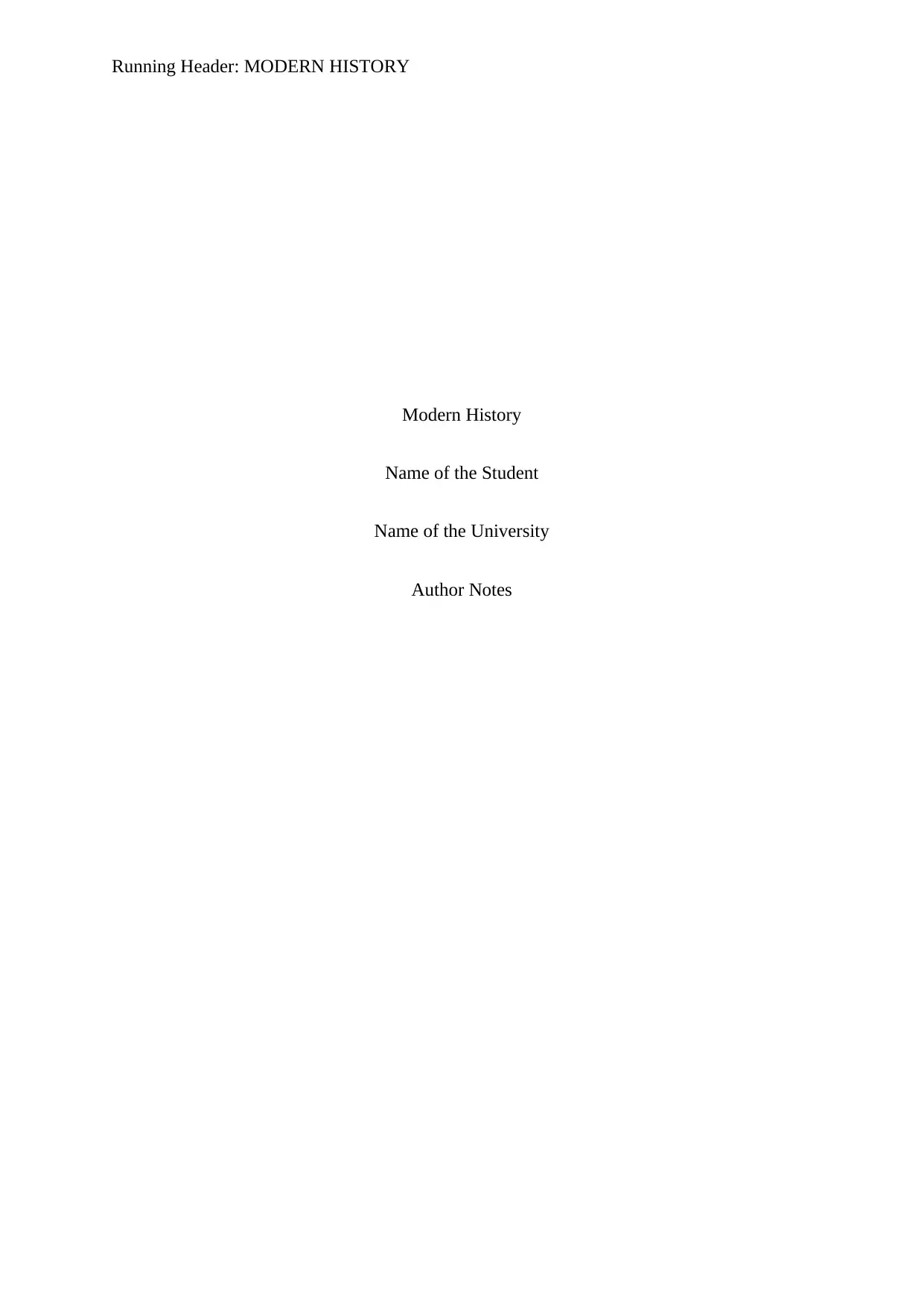
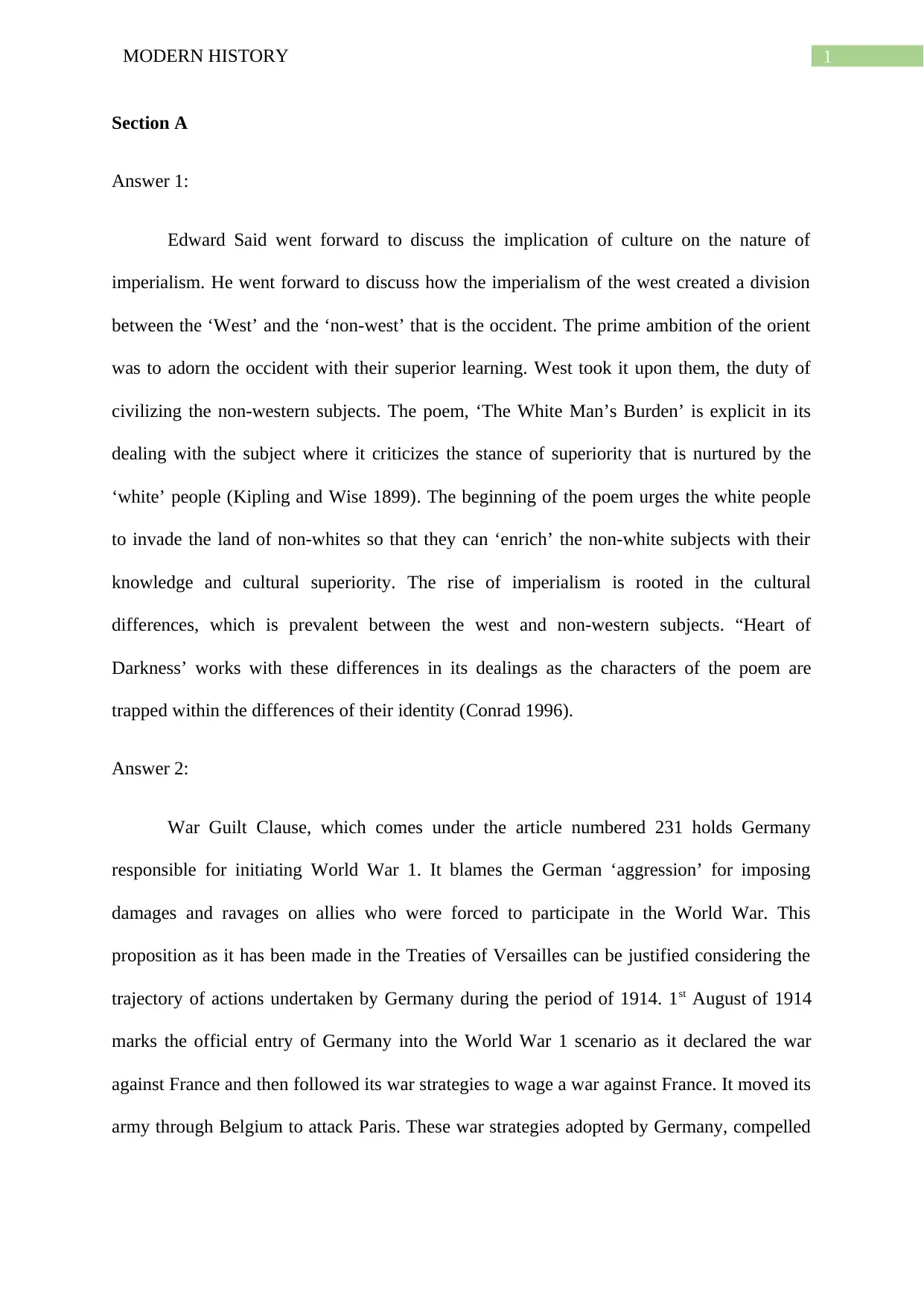
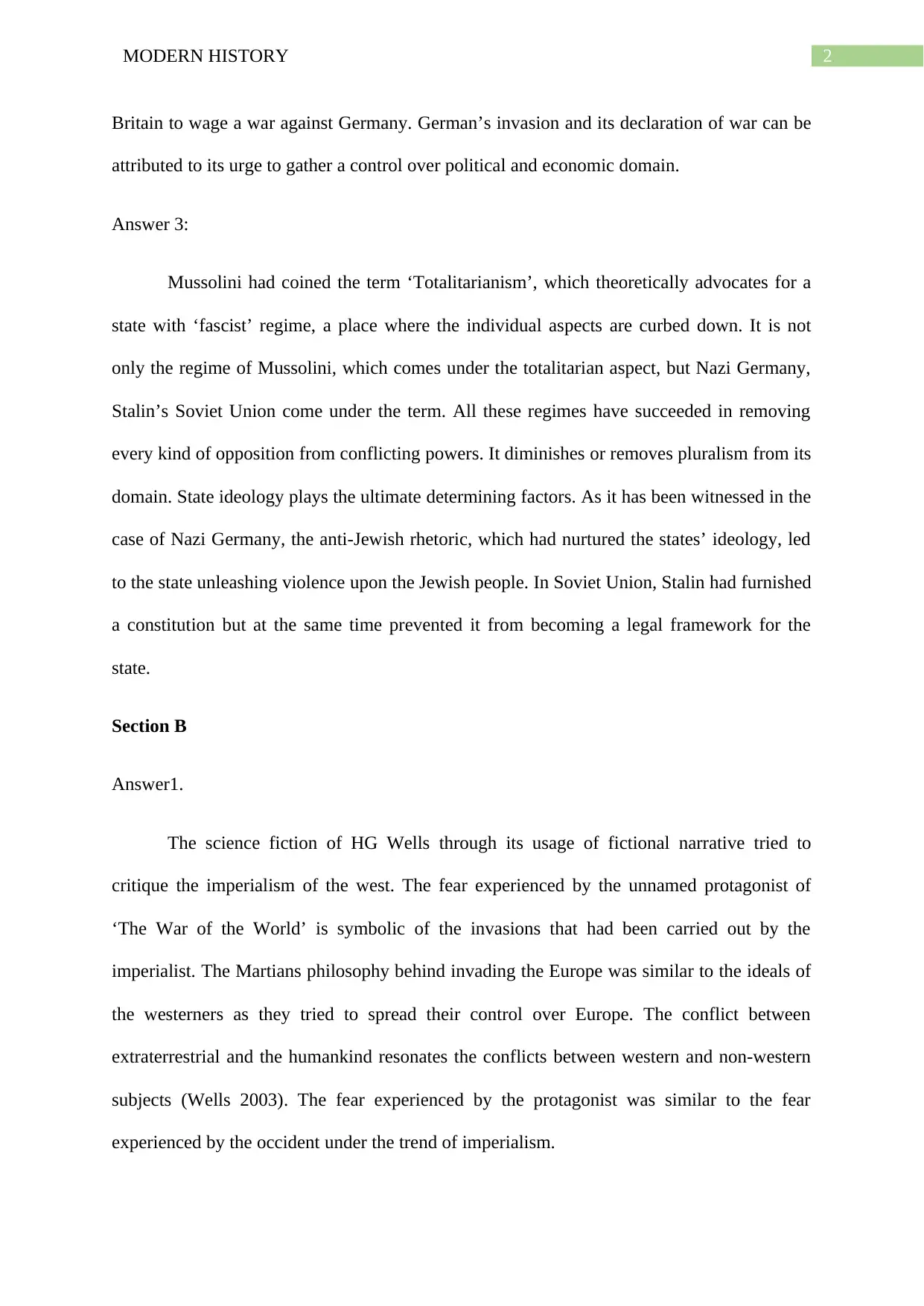

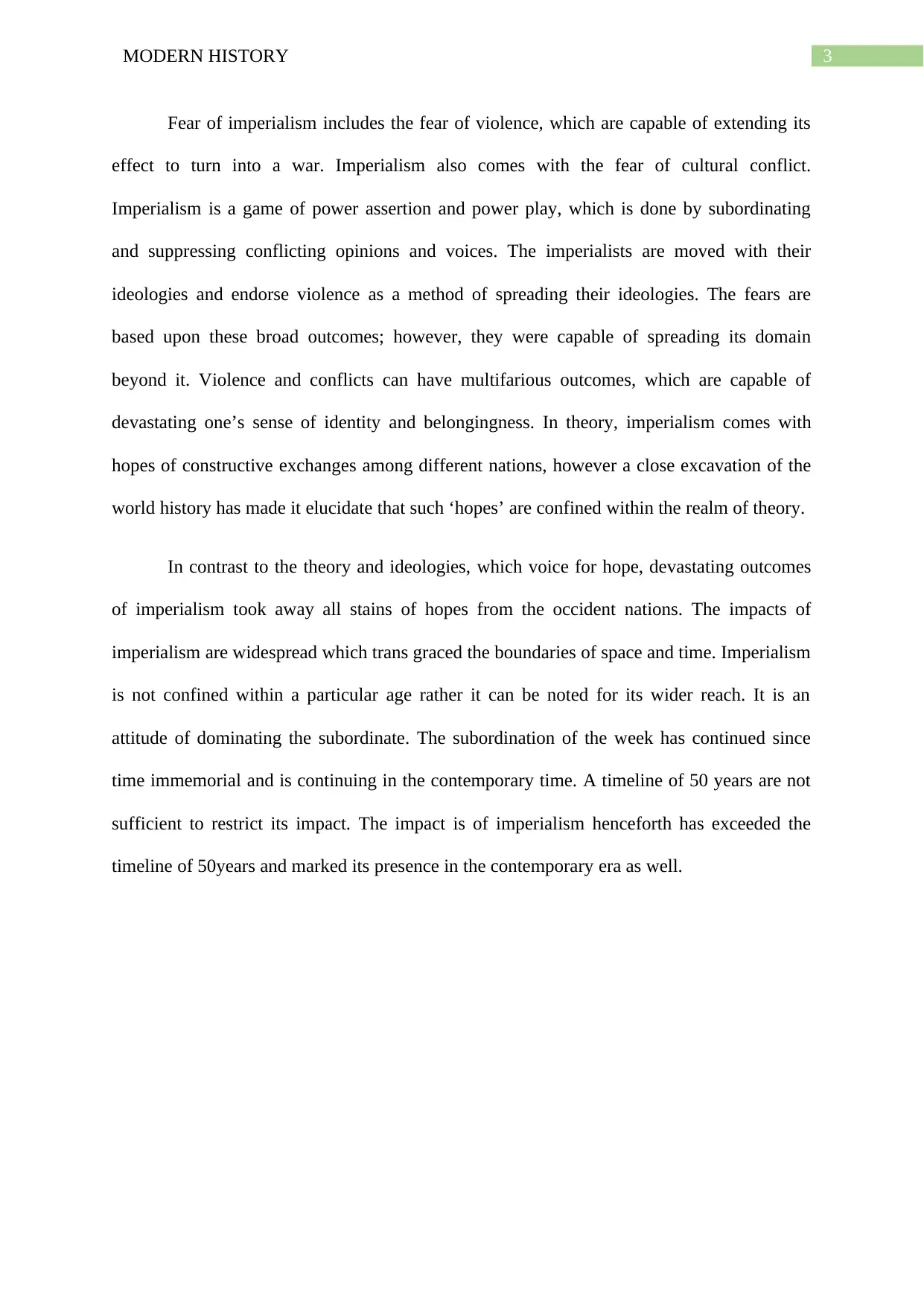
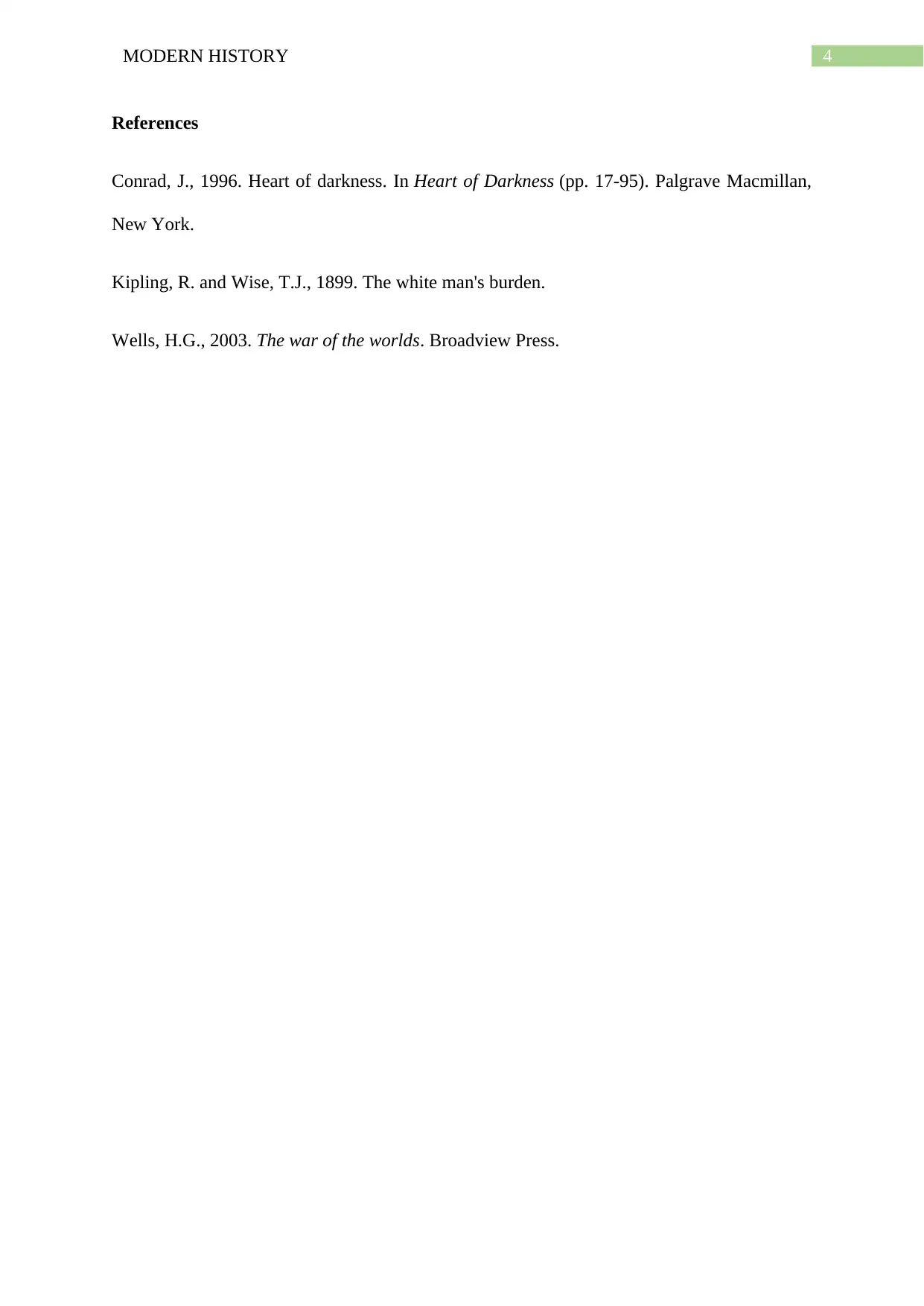


![[object Object]](/_next/static/media/star-bottom.7253800d.svg)